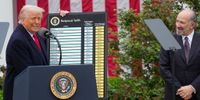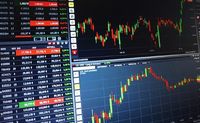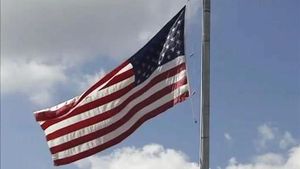On Friday, April 4, 2025, a new wave of panic hit the stock market as escalating trade tensions between the United States and China intensified. The Paris Bourse, particularly the CAC 40 index, saw a significant decline, erasing all gains made since the start of the year. By mid-afternoon, the CAC 40 plunged by 4.01%, dropping 304.55 points to settle at 7,294.43 points, marking a 1.05% decline since January 1.
This latest downturn came in response to announcements from U.S. President Donald Trump, who revealed punitive tariffs on Chinese imports. In retaliation, China declared it would impose additional customs duties of 34% on American products starting April 10, 2025. This escalation in tariffs has left investors worried about the potential implications for the global economy.
Leah Fahy, an economist for China at Capital Economics, commented on the situation, stating, "This aggressive response makes a short-term agreement to end the trade war very unlikely." The market's reaction was swift, with the E-Stoxx50 falling by 4.2% and the VIX index, which measures market volatility, surging by 32% to surpass 39.
As the CAC 40 faced its worst drop in 48 hours since March 2020, major French banks were among the hardest hit. Société Générale and BNP Paribas saw their shares decline by 10.4% and 9.2%, respectively. Other industrials, including ArcelorMittal, Saint-Gobain, and Stellantis, also experienced significant losses, dropping between 7% and 9%. In contrast, companies like Danone and Air Liquide managed to post slight gains, indicating a defensive stance amidst the turmoil.
Meanwhile, Wall Street mirrored these declines, with the Dow Jones falling by 3.89%, the S&P 500 by 4.71%—its largest loss since 2020—and the Nasdaq Composite by 5.83%. As of April 4, the Nasdaq had dropped over 20% from its last peak, raising concerns about a potential bear market.
Tom Cahill, an analyst at Ventura Wealth Management, noted, "The tariffs are higher and more serious than expected. It will take time to determine their exact effects on the economy and corporate profits." The upcoming earnings season, which begins next week with major banks including JP Morgan Chase, is expected to be closely watched by investors.
In a surprising turn, U.S. job creation figures released on the same day showed a jump of 228,000 non-farm jobs in March, significantly exceeding the Bloomberg consensus estimate of 140,000. However, the unemployment rate also ticked up by 0.1 points to 4.2%, raising concerns about the stability of the labor market. Mary Ann Bartels, chief investment strategist at Sanctuary Wealth, remarked, "The worst-case scenario for tariffs was not integrated into current price levels, explaining the strong risk aversion in the market."
Additionally, the economic outlook remains uncertain. Ipek Ozkardeskaya from Swissquote stated, "The global economy has now entered a dark tunnel, and no one knows what will follow." With the European Union preparing to announce retaliatory measures against the U.S., including potential actions against American technology giants, the stakes continue to rise.
On the other side of the Atlantic, the Nikkei index in Tokyo fell by 3.7%, adding to the previous day's decline of 2.8%, resulting in a weekly loss of 9.9%. This marked the worst weekly performance for the index since the Covid crisis, raising questions about the sustainability of the current market conditions.
As analysts continue to assess the situation, many are urging caution. Paolo Zanghieri, an economist at Generali Investments, indicated that stocks could face prolonged liquidation, although he remains optimistic about medium-term prospects. Conversely, Michael Brown, a strategist at Pepperstone, warned that the recent announcements by Trump signal the potential end of free trade, a shift that markets will need time to digest.
In the commodities market, oil prices also took a hit, with Brent crude falling by 5.9% to $65.7 per barrel. The economic implications of the U.S. trade policies and the Federal Reserve's reluctance to alter interest rates are likely to continue influencing market dynamics.
As the day progressed, Jerome Powell, the chairman of the Federal Reserve, was set to address the nation at a conference, marking his first public comments following the recent tariff announcements. His insights on the economic outlook and the impact of tariffs on inflation will be closely scrutinized by investors.
In summary, the escalating trade war between the United States and China has triggered significant market volatility, erasing gains in major indices and raising concerns about the broader economic implications. As both nations prepare for further retaliatory measures, the global economy braces for potential repercussions.





